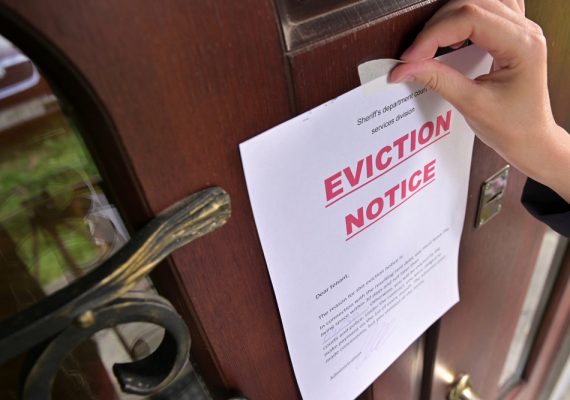CAN MY LANDLORD EVICT ME FOR HAVING A DOG IN NEW YORK?
If you’re searching for pet-friendly apartments in the NYC area, you might be wondering, “Can my landlord evict me for having a dog in New York?” While the prospect can be quite overwhelming, the answer isn’t all that straightforward.
Whether you have a dog, cat, or any other pet, most New York housing will not allow pets. Some apartments have a strict “no pet” policy to prevent damage to the property, and some limit the number of pets per unit to keep tenants from adopting too many furry friends.
Even if a New York landlord allows pets in their building, they’ll require tenants to keep them confined to the units. This means that your four-legged friends cannot roam freely or be left unattended on balconies.
We understand that the rules and regulations can be a bit confusing, so we’ve gathered a list of laws that you’ll need to consider when renting with pets in New York.
NYC Pet Law: A Tenant’s Rights
The NYC Pet Law was established in 1983 to address the landlord’s pet bans in apartment buildings that led to disputes between landlords and tenants. It applies to all renters living in buildings with three or more apartments, and the owners of co-operative apartments in all five boroughs of New York City.
 This includes the condominium owners in Staten Island, Brooklyn, and Queens, but it does not apply to condo owners in Manhattan and the Bronx, or the buildings owned by the New York City Housing Authority (NYCHA).
This includes the condominium owners in Staten Island, Brooklyn, and Queens, but it does not apply to condo owners in Manhattan and the Bronx, or the buildings owned by the New York City Housing Authority (NYCHA).
When it comes to pet policy, some buildings do allow for pets, while others may be subject to specific laws like rent control. However, this isn’t always the last word on whether or not you can own a pet – the NYC Pet Law has a legal loophole that allows you to keep your pets in your New York apartments legally—despite a “no-pets” clause in the residential lease.
According to the clause, a landlord cannot impose a “no-pet” policy if:
- The tenant has disclosed the presence of the pet “openly and notoriously.”
- The landlord or their agent has known about the pet for three months or more.
- The landlord does not follow through on the court proceedings within three months of learning about a pet’s presence in the apartment.
- Your pet does not create a nuisance, such as damaging the property or creating serious health issues for the other tenants’ health and safety.
For those tenants who end up having to navigate lease terms that prohibit pets, there are several strategies that may help you negotiate a compromise, including:
- Additional security deposits or pet insurance
- Having a certificate of training for your pet
- Exceptions for service or emotional support animals
Pet Eviction Notice: A Landlord’s Rights
Landlords have the right to evict tenants in New York City who violate pet policies that are outlined in their lease agreements. If a lease explicitly prohibits pets, for instance, and a tenant brings one into the property without prior approval, the landlord may issue a pet eviction notice. Similarly, if a pet happens to damage the property or cause disruptions that bother other tenants – excessive noise, allergy concerns, etc. – the landlord is legally allowed to take action as well. And in cases where a pet poses an actual safety risk—such as aggressive behavior, attacks, or failure to adhere to city regulations like leash laws—landlords may pursue eviction in order to protect the safety of other tenants and the property itself.
That said, landlords have to follow specific legal obligations when issuing pet eviction notices. They must provide adequate notice, as per New York’s housing laws, which generally require written notice with clear reasoning for the eviction. Landlords must also respect city and state protections for tenants, such as those for emotional support or service animals, which may be exempted from standard pet restrictions. Failure to follow these proper procedures – including giving tenants a chance to rectify the issue when appropriate – can lead to legal challenges for violating New York City’s housing regulations.
New York State Pet Laws for Apartments
Tenants in rental properties in New York state are protected by pet laws under the Fair Housing Act (FHA), which requires landlords to make reasonable accommodations for service animals and emotional support animals, even in pet-free buildings. Local ordinances are the most important factor to take into account – specific pet ownership rules like leash laws and limits on the number of pets are often dictated by local authorities, while landlords may impose regulations based on certain breeds or the size of dogs, provided they don’t violate FHA guidelines.
In short, if a tenant fails to comply with lease terms or local pet laws, the answer to the question: “Can I be evicted for having a dog?” could very much be “Yes!”
Bennett Movers
Our team has over 25 years of experience and is fully licensed, insured, and equipped to deal with New York eviction. Ready to move? Browse our eviction services, learn more about the eviction process, and contact us today for a free quote.












